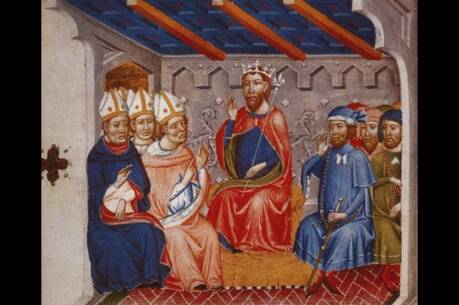Every day our attention is caught by stories in the news. Usually, the thoughts they occasion are fleeting. Sometimes the impression is more long lasting and they linger for days. One such story for me is that of the three schoolgirls in Britain who on Feb. 17 left their comfortable middle-class lives to fly off to Turkey and from there make their way to Syria to join the Islamic State. The three girls, two of them age 15 and another 16, are classmates, described as good students, well integrated into their society and showing no previous signs of extremism.
There’s a novel here, a dramatic one. I hope it won’t become the tragic novel I fear it might, but I can’t help wondering what lies ahead for these girls. Marriage to a young jihadi, or combat. Almost inevitably, hardship. And if they don’t get killed in Syria, will they face charges if they return to Britain? All this because they were young, impressionable and intrepid. Given the Islamic State’s many brutal acts, it is difficult for me to fathom its appeal, but judging from the number of young foreign recruits flocking to join the group, it has it. Masters of media, the I.S. is said to put out compelling propaganda videos, has 50,000 Twitter accounts and presents itself as offering opportunities for all who want to enroll. Analysts say any number of factors drive recruits; there is no one path to jihadism. Many of those who join the I.S. are religiously ignorant and not particularly pious, which doesn’t mean the dream of re-establishing the caliphate doesn’t resonate with them nonetheless.
I suppose 900 years ago people joined the Crusades out of a similarly wide range of motives: a love of adventure, a wish to see the world or to escape one’s situation at home, a desire to take part in a great cause, to do something important, lack of good alternatives, religious idealism. Religious Zionists planting Jewish settlements on the West Bank to redeem the land are following in the footsteps of the Crusaders. The Islamic State is so extreme, its practices so far from mainstream Islam, that it beggars belief to think its leaders are sincerely religious. But they don’t have to be to succeed. Two states were created on the basis of religion in the 20th century. Pakistan was established as a state for Muslims after the partition of India in 1947; Israel as a state for Jews, both secular and religious, in 1948.
Religion has become something to be deplored today, especially Islam. “What’s the matter with Islam?” has become a rallying cry, especially by those who know little about the religion or about the politics in the countries where Muslims live. But while religion plays an important role in motivating and recruiting Muslims to jihadi groups like the Islamic State, the chief drivers of Islamic terrorism lie outside religion, in grievances shared widely across society. Undemocratic regimes that refuse to share power, lack of opportunities, Western foreign policy and feelings of disenfranchisement from the societies in which Muslims live fuel extremism. So too can a longing for meaning, a desire for excitement and a need to belong.
Analysts who study jihadis say there is no reliable socio-demographic profile. Some are troubled young people; others are those who would enjoy good prospects in their home countries if they stayed put. Researchers at Queen Mary University of London found most jihadis from England are highly educated, from financially secure families and spoke English at home. The French newspaper Le Monde reported that a quarter of the French jihadis in Syria come from a non-Muslim background. Whether native or foreign-born, the great majority of jihadis are radicalized today not by someone they know or by an imam in a mosque but over the Internet, which Peter Neumann, director of The International Center for the Study of Radicalization, calls “the most powerful tool that ever existed for promoting ideas—good ideas and bad ideas.”
How will Shamima, Kadiza and Amira fare in the Islamic State? There’s a great bildungsroman to be written about their experiences if they survive them. Theirs is the face of innocent youth running into a war few of us comprehend. They humanize what otherwise strikes us as alien, horrifying and barbaric. We marvel at their illusions, their idealism, their recklessness. Leaving childhood behind, they have stepped boldly into their future, and we fear for them.








